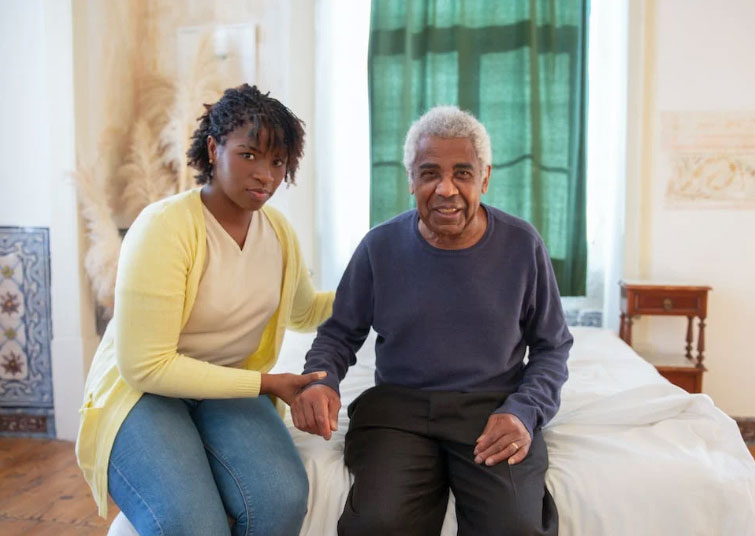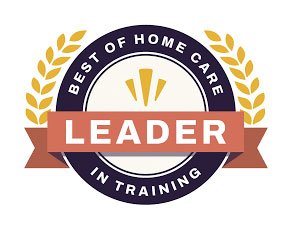
Music therapy is a powerful, evidence-based intervention that can profoundly impact the emotional, mental, and physical well-being of patients in home hospice care settings. At Golden Rule Hospice, we are committed to providing the highest level of compassionate care by considering how various therapies and approaches can optimize our patients’ comfort and well-being. This article explores the benefits of integrating music therapy into a patient’s home hospice care plan, discussing its potential applications, the role of board-certified music therapists, and practical tips for incorporating this therapeutic modality into care routines.
Music therapy is a research-backed intervention that uses music and its elements, including rhythm, melody, and harmony, to address several physical, mental, and emotional needs of patients in home hospice care. Utilizing a combination of active and receptive techniques, trained music therapists help patients achieve specific therapeutic goals, such as enhancing emotional expression, improving mood, promoting relaxation, and managing pain. They do this by employing various patient-centered approaches such as songwriting, music improvisation, guided imagery, and passive music listening. Music therapy can be tailored to the individual’s preferences, culture, and background, making it accessible and enjoyable for diverse populations.
Music therapists are board-certified professionals who have completed a rigorous academic program preparing them to design and implement music therapy interventions for specific populations, including patients in home hospice care settings. Their expertise ensures that the chosen interventions are safe, effective, and in harmony with the patient’s unique needs.
As a licensed provider of home hospice care in Georgia, Golden Rule Hospice aims to help patients and their families navigate the complexities of end-of-life care with the utmost compassion and understanding. By shedding light on the therapeutic benefits of music therapy in home hospice care settings, we hope to empower patients and their families to explore and embrace the vast array of resources that can help make their home hospice journey more meaningful and comfortable. In the following sections, we will delve deeper into the benefits, applications, and practical considerations of integrating music therapy into a patient’s home hospice care plan.
Understanding the Concept of Music Therapy in Home Hospice Care
Music therapy has been widely recognized as a valuable therapeutic modality for various care settings, including home hospice care. Rooted in extensive research, music therapy utilizes the therapeutic elements of music to address patients’ physical, emotional, and cognitive needs, allowing them to cope better with the challenges of living with a life-limiting illness. In the context of home hospice care, music therapy interventions are tailored to each patient’s unique situation and preferences, ensuring maximum comfort and efficacy throughout the process.
Types of Music Therapy Interventions in Home Hospice Settings
Music therapy in home hospice care encompasses various interventions, ranging from active participation to passive listening experiences. These diverse approaches allow patients and their families to engage in therapeutic activities at their comfort level. Some common music therapy interventions in home hospice settings include:
- Songwriting: This creative intervention enables patients and families to express themselves through lyrics and music composition, allowing them to process emotions, memories, and experiences.
- Music Improvisation: By playing instruments or singing spontaneously, patients and their families can explore and express their emotions, fostering a sense of connection and support.
- Guided Imagery and Music (GIM): GIM intervention combines music listening and relaxation techniques, guiding the patient through a series of mental images as they listen to carefully selected music, facilitating emotional processing and relaxation.
- Passive Music Listening: Listening to live or recorded music can promote relaxation, reduce stress, and provide a soothing sensory experience for patients in home hospice care.
The Role of Board-Certified Music Therapists in Home Hospice Care
Board-certified music therapists are essential to implementing effective music therapy interventions in home hospice settings. They possess the required education and training to design, adapt, and implement music therapy protocols for specific populations. In home hospice care, their role involves the following:
- Assessment: Music therapists evaluate each patient’s unique needs, musical preferences, and abilities to develop an individualized music therapy plan.
- Intervention Design: Depending on the patient’s identified needs, music therapists design appropriate interventions that focus on specific therapeutic goals related to their physical, emotional, or cognitive well-being.
- Implementation: Music therapists facilitate music therapy interventions, ensuring that the activities are engaging, accessible, and enjoyable for the patient and their family.
- Evaluation and Documentation: Music therapists monitor progress and adjust interventions as needed, documenting the patient’s responses and experiences throughout the therapeutic process.
Benefits of Music Therapy for Patients in Home Hospice Care
Integrating music therapy into a patient’s home hospice care plan offers several potential benefits:
- Emotional Expression and Support: Music therapy offers a powerful medium for emotional expression, allowing patients to communicate and process complex feelings such as grief, fear, and sadness.
- Enhanced Mood and Relaxation: Engaging in music therapy interventions can help improve patients’ moods, promote relaxation, and reduce anxiety, creating a more comfortable and peaceful environment for home hospice care.
- Pain Management: Research indicates that music therapy can provide pain relief by affecting pain perception, enhancing the release of endorphins, and promoting relaxation.
- Cognitive Stimulation and Reminiscence: Interactive music therapy interventions can promote cognitive stimulation, facilitate reminiscence, and nurture a sense of connection among patients and their families.
Benefits of Music Therapy for Families and Caregivers
Integrating music therapy into home hospice care not only benefits patients but can also provide essential support to family members and caregivers:
- Emotional Bonding: Families can come together through music therapy interventions, fostering a deeper emotional connection and helping them navigate the challenges of hospice care.
- Self-Care and Respite: Music therapy interventions can offer caregivers an opportunity for self-care and respite, providing a reprieve from the demands of caregiving.
- Grief and bereavement support: Music therapy can serve as a valuable resource to help families and caregivers cope with grief during and after the hospice care journey.
Tips for Integrating Music Therapy into a Patient’s Home Hospice Care Plan
- Consult with a Music Therapist: If you are considering integrating music therapy into a loved one’s home hospice care plan, consult with a board-certified music therapist who will be able to assess the patient’s unique needs and design an appropriate, personalized intervention plan.
- Encourage Patient Involvement: Encourage the patient to participate in music therapy interventions according to their preferences and comfort level, keeping in mind that some patients may prefer passive activities while others may enjoy active participation.
- Be Patient and Flexible: Remember, the primary goal of integrating music therapy into home hospice care is to enhance the patient’s comfort and well-being. Be patient and flexible when implementing these interventions, adjusting as needed to ensure the experience is enjoyable and beneficial for everyone involved.
Conclusion
Music therapy offers tremendous potential for supporting the emotional, mental, and physical well-being of patients and their families in home hospice care settings. By incorporating this evidence-based intervention into care plans, healthcare providers and families can enhance the quality of life and create a more comfortable and supportive environment for patients during their home hospice journey.
As a licensed hospice care provider in Georgia, Golden Rule Hospice is dedicated to delivering expert care and guidance to families in need of compassionate end-of-life support. If you or a loved one are considering hospice care at home in Atlanta, contact Golden Rule Hospice now at (470) 395-6567 to learn more about our comprehensive care services and how we can support your family throughout this important time in your lives.
We live by the Golden Rule
Treat others the way you would like to be treated.







